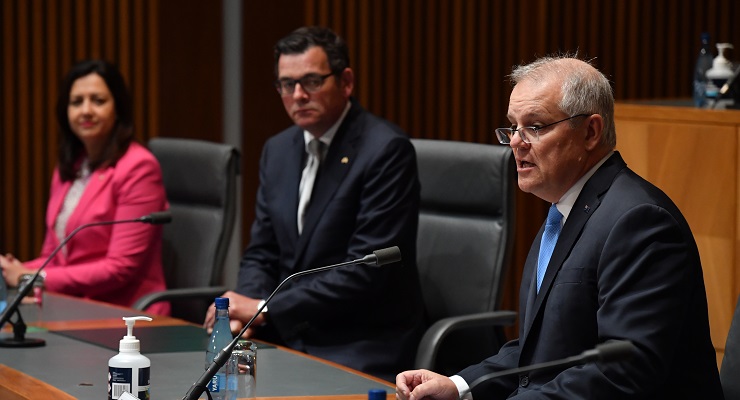
It was only last month that it looked like the government would have to hand over all the details of every meeting held inside the national cabinet, after a Federal Court judge ruled the body was not in fact a “cabinet” and therefore not entitled to “cabinet confidentiality” under Freedom of Information rules.
Fast forward to today, and the government has taken matters into its own hands, introducing legislation that would potentially get around this troublesome ruling.
The COAG Legislation Amendment Bill includes provisions that would “protect from disclosure the deliberations and decisions of the cabinet and its committees”.
The provisions would apply to the “deliberations and decisions of the committee of cabinet known as the national cabinet”.
The bill was introduced on Thursday. That was the deadline given to the government to appeal a decision made by Justice Richard White in the AAT, who ruled the national cabinet was not a cabinet (despite the prime minister’s claims) and therefore not privy to cabinet-in-confidence.
That decision was a victory for crossbench Senator Rex Patrick who had taken the government to the tribunal after being denied the minutes of national cabinet meetings on the basis of cabinet confidentiality.
For the love of secrecy
Cabinet confidentiality has become a favourite mantra inside the Morrison government, and this has extended to national cabinet.
But Justice White ruled the national cabinet had none of the hallmarks of an actual cabinet — it comprises state premiers from different political parties — and therefore could not rely on the confidentiality claim.
Labor has referred the bill to the Senate Finance and Public Administration Committee, which will give the Senate an opportunity to dissect it.
“This is a government addicted to secrecy, and hiding from the Australian public their right to know what their government is doing in their name,” shadow attorney-general Mark Dreyfus said.
Patrick said the PM was a “sore loser, obsessed with secrecy and allergic to transparency”.
“This is another blatant attack on democratic accountability from a PM who absolutely hates scrutiny.”
What happens now?
The PM’s proposed amendments still need to pass through the Senate. But if the legislation passes it would once again shroud the national cabinet in secrecy.
This means documents tabled before the national cabinet would be exempt under freedom of information laws, shattering efforts to increase transparency over large parts of the government’s pandemic management.
Professor Anne Twomey at the University of Sydney said the bill would override existing safeguards to release information that is in the public interest.
“What this is really saying is, even if it is not in the public interest to keep things secret, we’re going to keep them secret anyway.”
Beyond the issue of transparency, it would also assume that the national cabinet is a cabinet, when a federal judge has ruled it is not.
“It’s still pretending this body is something that it manifestly is not,” Twomey said.








Rex Patrick is doing a great job, thanks for the article
The Coalition have never respected the laws of the land Hunt Sukkar and Fudge all committed contempt of court Dirtbag Dutton has also raged against the rule of law
Brandice, Porter, cache, all guilty of trashing the law and thinking that they are above the rule of law comma and largely the Coalition are above the rule of law.
Various law enforcement agencies I have always been happy to be the goon squad of the conservatives same with the ADF
Wasn’t it the great George Brandis, QC, who assured Australians that if they had nothing to hide there was nothing to fear….
Never was noted for the orginality of his thought, was he?
But anyway – why shouldn’t I have something to hide?
The more they have to hide, the more they have to hide.
Patrick said the PM was a “sore loser, obsessed with secrecy and allergic to transparency”. Rex Patrick is the hero of our times!